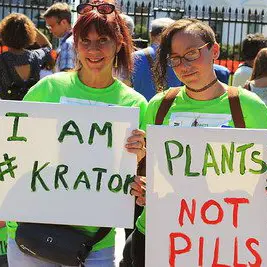Exploring the Botanical Education Alliance: Advocacy and Education for Natural Botanicals
The Botanical Education Alliance (BEA) is a crucial organization dedicated to the advocacy and education surrounding natural botanicals, including Kratom. In this blog post, we will delve into the mission, activities, and impact of the BEA, highlighting its importance in the world of natural supplements. We will explore how the BEA supports consumers, educates the public, and advocates for reasonable regulations.
What is the Botanical Education Alliance and What Do They Do?
The Botanical Education Alliance is a nonprofit organization that aims to promote and protect the use of natural botanicals through education and advocacy. Established with the primary goal of ensuring public access to safe and effective natural products, the BEA plays a vital role in the botanical community.
Mission and Vision
The mission of the Botanical Education Alliance is to safeguard the rights of consumers to access natural botanicals, particularly those that have shown therapeutic potential. The organization envisions a world where individuals can freely use natural botanicals to improve their health and well-being, supported by robust scientific research and reasonable regulations.
Educational Initiatives
A cornerstone of the BEA’s activities is education. The organization works tirelessly to provide accurate, science-based information about natural botanicals to consumers, healthcare professionals, and policymakers. Here are some key educational initiatives led by the BEA:
Consumer Education
The BEA offers a wealth of resources for consumers to learn about the benefits and risks associated with natural botanicals. This includes:
Informative Articles: The BEA publishes detailed articles on various botanicals, including their uses, benefits, and potential side effects. These articles are grounded in scientific research and aim to dispel kratom myths and misinformation.
Webinars and Workshops: The organization hosts webinars and workshops to educate consumers on safe usage practices, dosage guidelines, and how to choose high-quality products.
Publications and Guides: The BEA produces comprehensive guides that cover everything from the basics of botanicals to advanced topics like the regulatory landscape and scientific research.
Professional Education
Healthcare professionals are another critical audience for the BEA’s educational efforts. The organization provides:
Continuing Education Courses: These courses help healthcare providers stay updated on the latest research and clinical practices related to natural botanicals.
Research Summaries: The Botanical Education Alliance compiles and summarizes the latest scientific studies on botanicals, making it easier for healthcare professionals to access and interpret the data.
Expert Panels and Conferences: The organization organizes expert panels and conferences where professionals can discuss the latest trends, research findings, and clinical experiences with botanicals.
Policy and Advocacy
In addition to education, the BEA is deeply involved in advocacy work. The organization strives to influence public policy to ensure that consumers can continue to access safe and effective botanicals. Key advocacy efforts include:
Legislative Advocacy
The BEA works with lawmakers at both the state and federal levels to advocate for fair regulations that protect consumer access to botanicals. This includes:
Lobbying Efforts: The BEA engages in lobbying efforts to influence legislation that affects the botanical industry. This includes advocating for reasonable regulations that ensure product safety without unnecessarily restricting access.
Policy Proposals: The organization develops and promotes policy proposals that support the botanical industry. These proposals are based on scientific evidence and aim to balance consumer safety with access to natural products.
Grassroots Campaigns: The BEA mobilizes consumers and other stakeholders to participate in grassroots advocacy campaigns. These campaigns often involve contacting legislators, participating in public hearings, and raising awareness about important issues.
Regulatory Affairs Of Botanical Education Alliance
The BEA also works with regulatory agencies to ensure that regulations are based on sound science and do not unduly restrict access to botanicals. This includes:
Regulatory Submissions: The organization submits comments and proposals to regulatory agencies during public comment periods. These submissions are grounded in scientific research and aim to inform regulatory decisions.
Stakeholder Engagement: The BEA participates in stakeholder meetings and advisory panels to represent the interests of the botanical industry. This allows the organization to provide input on regulatory policies and ensure that they are fair and reasonable.
Compliance Assistance: The BEA provides resources and support to help businesses comply with regulatory requirements. This includes guidance on good manufacturing practices, labeling requirements, and other regulatory standards.
Research Support
Supporting scientific research is another key aspect of the BEA’s mission. The organization believes that rigorous scientific research is essential for understanding the benefits and risks of botanicals and for informing regulatory decisions. To this end, the BEA:
Funds Research: The organization provides funding for scientific research on botanicals. This includes studies on safety, efficacy, and mechanisms of action.
Promotes Collaboration: The BEA fosters collaboration between researchers, industry stakeholders, and healthcare professionals. This helps to advance the field of botanical research and ensures that findings are translated into practice.
Disseminates Findings: The organization disseminates research findings to a broad audience, including consumers, healthcare providers, and policymakers. This helps to ensure that decisions about botanicals are informed by the latest scientific evidence.
Community Engagement
The BEA is also committed to engaging with the broader community. The organization believes that community engagement is essential for raising awareness about the benefits and risks of botanicals and for building support for its advocacy efforts. Key community engagement activities include:
Public Awareness Campaigns
The BEA conducts public awareness campaigns to educate the public about botanicals and their uses. These campaigns often involve:
Social Media: The Botanical Education Alliance uses social media platforms to share information about botanicals, promote events, and engage with the public.
Media Outreach: The organization works with journalists and media outlets to raise awareness about important issues related to botanicals. This includes providing expert commentary, issuing press releases, and participating in interviews.
Community Events: The BEA participates in community events, such as health fairs and festivals, to raise awareness about botanicals and their benefits. This provides an opportunity to engage with the public directly and answer questions.
Membership and Support
The Botanical Education Alliance offers membership opportunities for individuals and businesses that support its mission. Members receive access to exclusive resources, including research reports, policy updates, and educational materials. Membership also provides an opportunity to participate in advocacy efforts and support the organization’s work.
How to Get Involved?
There are many ways to get involved with the BEA and support its mission. This includes:
Joining as a Member: Becoming a member provides access to exclusive resources and an opportunity to participate in advocacy efforts.
Donating: Donations help to fund the BEA’s educational and advocacy efforts. The organization is a nonprofit, and donations are tax-deductible.
Participating in Advocacy Campaigns: The BEA encourages individuals to participate in advocacy campaigns by contacting legislators, participating in public hearings, and raising awareness about important issues.
Attending Events: The BEA hosts events throughout the year, including webinars, workshops, and conferences. Attending these events provides an opportunity to learn more about botanicals and support the organization’s work.
Conclusion
The Botanical Education Alliance is a vital organization dedicated to promoting and protecting the use of natural botanicals through education and advocacy. By providing accurate information, supporting scientific research, and advocating for fair regulations, the BEA plays a crucial role in ensuring that consumers have access to safe and effective botanicals.
Whether you are a consumer, healthcare professional, or industry stakeholder, the BEA offers resources and support to help you navigate the world of natural botanicals.
We haven’t seen too much about the Botanical Education Alliance in recent years, but hopefully we will hear more about this wonderful organization that had an impact at the kratom rally march in 2016.

Plants not pills and i am kratom signs at the kratom rally in washington dc on september 13th 2016.
The AKA and the BEA worked very hard in 2016 to protect and stop the ban on kratom. Travis Lowin of the BEA Speaking at Kratom March in Washington DC.






0 Comments